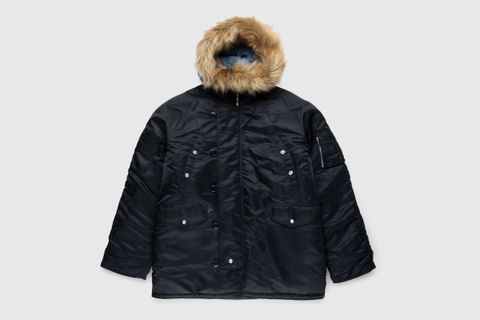Is Loud Budgeting the New Quiet Luxury?
If 2023 was the year that quiet luxury silently reigned supreme, 2024 shall henceforth be known as the year that loud budgeting shoved it aside and barged into center stage. Or so some believe.
Before it does, though, you might rightly ask: what is loud budgeting?
Loud budgeting is "not I don't have enough; it's I don't want to spend," said Lukas Battle in a viral TikTok that first laid out the idea. Loud budgeting is like "sneaking candy in a movie theater. You feel like you got away with something... an adventure. You feel like you're winning"
If that doesn't really make the concept any clearer, head to the comment section.
There, loud budgeting is defined as a celebration of thriftiness. Suddenly, with all this negative thinking surrounding the economy, it's become cool, even correct, to be cash-conscious.
Loud budgeting is about owning your financial constraints and wearing your limited means on your sleeve. Forget the big spenders; loud budgeting pedestals cheapskates as main characters.
Battle introduced the idea of loud budgeting in a pre-2024 list of feelings, vibes, and aesthetics that, for him, represented the new year. In a later video, Battle expanded upon the idea.
While he saw quiet luxury as "idolizing celebrities," loud budgeting is for "the average joe," a penny-pinching mood that all us proles can comprehend.
Confusingly, though, Battle contends that loud budgeting is simultaneously "more chic" and "more of a flex" than quiet luxury because "rich people" are apparently already doing it ("They hate spending money.").
This implies that the wealthy are engaging in both quiet luxury and loud budgeting, like how Warren Buffett owns both a private jet and decade-old sedan.
Battle even half-jokingly posits that loud budgeting could send "a message to corporations about the national inflation level," which sounds a little optimistic for a proposition that imbues pride into people who cancel dinner plans for the sake of saving a couple bucks.
But loud budgeting is indeed both catchy and conceptually intoxicating. It's a fitting mantra for the uncertain financial times we currently live in. Why not encourage people to take gratification in turning down extraneous expenses?
Like, who among us wouldn't be better served by being a bit louder, a bit prouder about saving cash?
And, to be fair, Battle clarified in an interview that he doesn't see loud budgeting as judgmental. It's loudness for the sake of self-preservation, not loudness for the sake of showing off.
That is to say, if you wish to splash your cash, feel free. But the loud budgeters will not partake. Loudly.
As one commenter pointed out, loud budgeting could be seen as a brassier offshoot of recessioncore, a concept that first started gaining traction about one year ago.
In a nutshell, recessioncore came about in response to economic downturn, swapping the obnoxious branding of logomania for refinement, both in terms of material goods and lifestyles.
In some ways, recessioncore set the groundwork for the quiet luxury trend, reflecting a taste for timeless, neutral-toned clothes months before stealth wealth was properly codified.
But it isn't just fancy, branding-free luxury clothes for the rich.
Recessioncore also encompasses the pre-Y2K purpose-driven minimalism of designers like Helmut Lang — necessity as luxury, epitomized by tank tops and jeans — and even the era's indulgences, which have become contemporary creature comforts in turn.
Tamagotchis were replaced by Sonny Angels; TV dinner evolved into girl dinner.
Maybe the economic impact that Battle associated with loud budgeting isn't so far-fetched. Really, it's just a verbal expression of the ideology behind recessioncore.
But there is a key difference between loud budgeting and quiet luxury. The former is a lifestyle, the latter is made tangible through clothes and accessories.
Sure, they're both predicated on distinct mindsets (and, really, mutually exclusive) but loud budgeting can't be solely expressed in clothing. Thrifted garms alone don't a loud budgeter make, whereas quiet luxury, at its core, could ostensibly be boiled down to a coat from The Row (or a similar-looking facsimile).
Actions speak louder than words but clothes do more talking than both. And without a distinct uniform, loud budgeting might be resigned to a snappy concept instead of a proper movement.
Not that it should be, to be clear.
I mean, even just as a concept, I'm personally far more into the idea of loud budgeting than quiet luxury. Who cares about looking wealthy when you could actually be wealthy?
Well, maybe saving a few dollars by skipping your morning latte or the occasional night out won't make you wealthy per se but I'm willing to bet that anyone who manages to stick with loud budgeting until the end of 2024 will likely feel better than those who continued splurging on signifiers of wealth.
After all, nothing looks better on you than financial stability.


